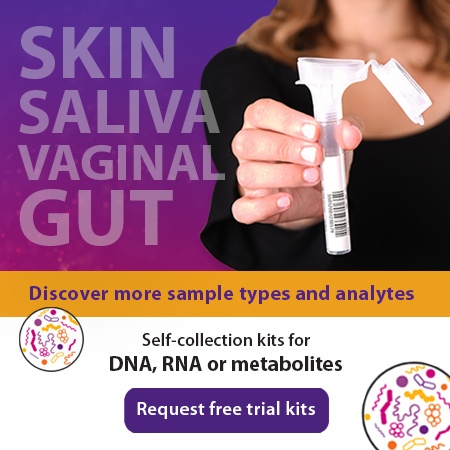2018-12-13
It is no secret that gut microbiome research has been on the rise leading to a plethora of new insights, theories and discoveries. Like you – we’ve been absolutely captivated watching this burgeoning field evolve and introduce many new areas of advancement in theoretical understanding as well as direct therapeutic applications. There was certainly no shortage of exciting new publications in the gut microbiome field this year, and it was a challenge to narrow down our list – but we would like to share what we chose as our top three gut microbiome publication selections from 2018 with you.
1. Gopalakrishnan V et al. Gut microbiome modulates response to anti-PD-1 immunotherapy in melanoma patients.
We found the results from this important study, led by Jennifer Wargo, M.D. M.M.Sc., at the University of Texas MD Anderson Cancer Center, extremely exciting because they highlight the therapeutic potential of modulating the gut microbiome to improve real-world health outcomes. Furthermore, they employed animal models to better understand the findings they observed first in their human cohort to shed more light on potential causations for their correlational results.
Although the use of immune checkpoint inhibitors, such as anti-PD-1 immunotherapy, targeting cytotoxic T-lymphocyte-associated antigen (CTLA-4) and programmed death 1 (PD-1) protein in treating patients with melanoma has shown considerable promise, as well as positive outcomes in a proportion of patients, overall response to this therapy has been heterogeneous for unknown reasons. This comprehensive prospective study sought to understand the role of the microbiome in mediating the response of anti-PD-1 treatment in cancer patients. All gut microbiome samples were collected using OMNIgene•GUT kits. Taxonomic profiling using 16S rRNA gene sequencing was performed on all eligible gut samples, and metagenomics whole genome shotgun sequencing was completed on a subset. Patients were classified as either Responders (R) or Non-Responders (NR) based on their objective response to treatment after 6 months.
The authors found significant differences in the diversity and composition of the gut microbiome of R versus NR patients. The alpha diversity of the R gut microbiome was significantly higher compared to NR. Furthermore, responding patients had a significantly higher relative abundance of Ruminococcaceae bacteria. To gain insight on the possible mechanisms for microbiome influence of response to anti-PD-1 therapy, metagenomic studies showed enrichment of anabolic pathways in R and catabolic pathways in NR. When fecal microbiome transplantation (FMT) was used to transfer stool from R and NR patients to germ-free mice, the mice that received FMT from R exhibited significantly reduced tumor growth, as well as an enhanced immune response compared to mice with FMT from NR. These results clearly illustrate a role for the gut microbiome in anti-PD-1 therapy outcome and “warrant prompt evaluation in cancer patients through clinical trials.”
2. Dubey AK et al. LogMPIE, pan-India profiling of the human gut microbiome using 16S rRNA sequencing.
The Landscape Of Gut Microbiome – Pan-India Exploration (LogMPIE) study is exciting because it represents “the first large-scale, observational, multi-centric, cross-geographic and diverse age group study focusing on the Indian population.” The aim of this study was to map the baseline gut microbiome specifically in an Indian population. All the data collected in this study is open and can be accessed via the European Nucleotide Archive (ENA) portal of the European Bioinformatics Institute.
Fecal samples were collected using the OMNIgene•GUT kit from a total of 1004 eligible participants ranging across 14 geographical locations in India. Information regarding sex and lifestyle patterns were recorded. The samples were all extracted using a single methodology to prevent bias with QIAamp DNA Mini Kit (QIAGEN; Germany). The authors reported features specific to the Indian population, such as a higher relative abundance of Prevotella copri found in the Indian gut microbiome composition compared to the Western gut microbiome. We are very interested to see this comprehensive gut microbiome repository used in future studies.
3. Szopinska JW et al. Reliability of a participant-friendly fecal collection method for microbiome analyses: a step towards large sample size investigation.
We selected this paper for two reasons:
- Emphasizing the critical importance of DNA extraction methods in microbiome profiling
- Highlighting the use of OMNIgene•GUT kits for collection, stabilization and storage of gut microbiome samples at ambient temperature.
To study the association of the gut microbiome with complex human diseases where the effects may be moderate will undoubtedly require large sample cohorts. We know that bias in microbiome data is introduced at all points of the work flow from sample collection, shifts in neutrality due to stabilization buffers, library preparation, different sequencing platforms – and, certainly, DNA extraction methods. The aim of this study was two-fold: to compare efficiency of OMNIgene•GUT as a participant-fecal friendly collection method stored at room temperature for 24 hours and 7 days with the standard method of fresh stool samples stored at 4⁰C for less than 24 hours; and to compare two common DNA extraction methods: QIAamp DNA Mini Kit (QIAGEN; Germany) versus PowerFecal DNA Isolation Kit (MO BIO Laboratories, Inc.; U.S.A.).
The results showed that “DNA concentration, purity and Shannon diversity index did not show differences between fresh and OMNIgene•GUT kit.” The second finding, however, was striking – the two commonly used extraction kits “showed significant differences in terms of DNA quantity, quality, bacterial diversity and relative abundance. Revealing that the choice of DNA extraction method influences the gut microbiome profile.” They “discovered that by combining the OMNIgene•GUT kit and QIA extraction method [they] maximized the information content.” this “underscore[s] the importance of the choice of a DNA extraction method for the proper human gut microbial representation.”
Do you agree with our top three gut microbiome publications in 2018? We’d love to hear your feedback in the comment section below. If you would like more information regarding the OMNIgene•GUT microbiome kits, please contact us at info@dnagenotek.com


